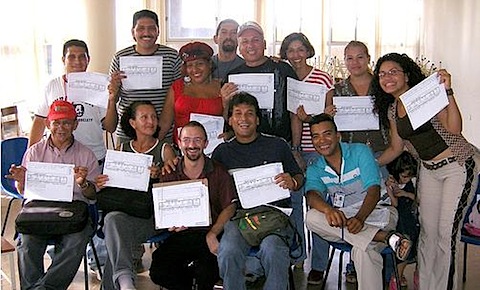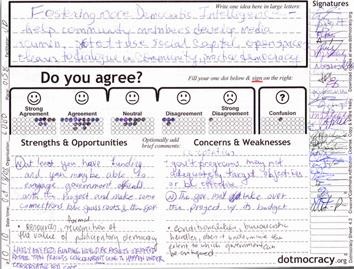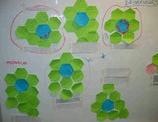Originally posted March 23, 2009
The end of “business as usual”
Please, let us be coming to the end of “business as usual”. Conversations about whether MBA programs caused the financial crisis and what the future of capitalism should be suggest that ways of doing business that have long been seen as acceptable and even admirable are now being revealed as economically, socially and ecologically destructive. Hasn’t this economic crisis lead you to doubt whether “business as usual” is something we really want to recover? I, for one, don’t think that business as usual is worth saving.
Welcome “progressive organizational movements”
In spite of all the bad news, I’m becoming more optimistic that positive change may will occur, because I’m seeing all around us a range of (what I call) progressive organizational movements. Progressive organizational movements are initiatives that aim to create social and economic change simultaneously, through for-purpose business, through nonprofit initiatives and/or through political initiatives.
When I think about the macro-dynamics of organizations that are subtly and radically different working to improve our economic, social, political, and natural world, there really is change afoot. Yet, the organization scholar in me wonders about the relationship between the ends: social transformation, and the means: the organizational systems and tools that will create the organizations that will lead these changes.
Audre Lorde’s Change Leadership Advice
As Audre Lord memorably reminds anyone who ever takes a women’s studies class,
The master’s tools will never dismantle the master’s house.
The master’s tools won’t help us build authentic organizations, either. So now we need to ask:
- What tools will progressive organizations use to create the changes we need to see in our world?
- What tools can organizations use so that they simultaneously move towards their goals and act now on their principles?
- Where can progressive organizations find tools that express their values?
 Progressive organizations, organizations with a change-oriented purpose, need to put their values into practice as they go about creating change. Otherwise, they will not act authentically and they will reduce their own power.
Progressive organizations, organizations with a change-oriented purpose, need to put their values into practice as they go about creating change. Otherwise, they will not act authentically and they will reduce their own power.
Every organization devoted to change needs to be built with new “tools” and I’m not just talking about Web 2.0 tools. I’m thinking about decision making tools, information sharing tools, coordination tools, feedback systems, tracking tools, and tools for celebration. Cellar to roof.
Finding alternative tools
Thus motivated, I’ve begun a quiet quest for new, alternative tools. When I say new , I don’t mean taking popular tools like GTD and scaling them up to the organizational level. When I say alternative , I’m not looking for tools that are built on conventional assumptions about relationships between people or conventional assumptions about what good “control and coordination” look like.
I’m thinking alternative in that these tools start from a different premise about who we are and why we are together. I’m looking for tools that will support businesses and organizations that exist for something beyond profit, and that want to model right now the changes they seek. Still with me?
Dotmocracy, a little example of a big change
So, last week, when blogging friend Easton Ellsworth was looking for ideas about how to get tons of people involved in a cause, I sent him to this site: Dotmocracy.
Dotmocracy is a deceptively simple , easy way for a group of people to generate ideas and evaluate options. On the website is quick explaination of the process as well as manuals and forms for putting the process to work in your organization.
As described by Jason Diceman, an activist who has codified the advanced form of Dotmocracy:
The Advanced Dotmocracy process has been proven to:
- Recognize priorities and direction from all participants.
- Engage and empower diverse groups.
- Give a voice to even the quietest of participants.
- Recognize and celebrate shared values.
- Focus on solutions while avoiding traditional power dynamics.
- Provide fully documented results that can be easily translated into action plans.
- Garner friendly discussions while efficiently leading to practical conclusions.

(I especially like the way that this process helps us circumvent obstacles created by power dynamics and imbalances within groups of diverse participants.) As a bonus, the Dotmocracy process is fun and takes only minutes to learn and apply. The process has some similarities with crowdsourcing.
Tools that create change as they create change
It’s important to recognize that Dotmocracy is more than just an alternative to brainstorming. Look more closely at the values that Dotmocracy is built upon. And, look closely at what Dotmocracy can create.
Dotmocracy is a process that :
- generates constructive feedback,
- develops the elements of trust
- reinforces relationships between individuals as peers,
- draws on the diversity of perspectives within in a group, and
- invokes contributions of uniqueness from individuals.
Dotmocracy is not a “perfect” tool- – it does not (and does not claim to) solve every problem with group idea generation and choice.
There are lots of organizing and organizational tools out there that seem mundane at the surface but aren’t designed to sustain “business as usual.” Instead, underneath their simple instructions, these tools are actually subversive . Yes, I said subversive , in a good way, right here on this blog for business people. These tools put into practice the changes that the progressive groups want to create in organizations, in our economy and in society.
Finding tools for change
Jason Diceman, the activist and stakeholder engagement consultant who maintains the Advanced Dotmocracy site also maintains a list-in-progress called The Co-op Tools List. The Co-op Tools List is a collection of simple techniques that help make co-operation a whole lot easier. The Co-Op Tools website has lists of even more resources (like Collections of Engagement Techniques ) that look like they would be useful for progressive organizations.
I’ll be on the lookout myself, partly to help add to Jason’s list if I can, and also to get up to speed on the opportunities out there. In the meantime, if you know of tools for change, please recommend them to Jason.
We need more tools that create change as they create change, so that organizations can put into action the changes that they want to bring to our world.
We may not need to reinvent the wheel, but we do need more tools to reinvent just about everything else.
Photos from Dotmocracy Flickr page and Shawn at Anecdote, the collaborative workplace consultancy. Old wheels from Indslf72 on Flickr.
 I am an organizational consultant, change advocate, and organizational identity/reputation scholar with a PhD in leadership & organizations. I research, write about, and consult with organizations on the relationships between organizational identity, actions, and purpose. I teach Technology Management, part-time, at Stevens Institute of Technology.
My current research focuses on how social technologies in the workplace can drive organizational change, generate meaning, and catalyze purpose. See the
I am an organizational consultant, change advocate, and organizational identity/reputation scholar with a PhD in leadership & organizations. I research, write about, and consult with organizations on the relationships between organizational identity, actions, and purpose. I teach Technology Management, part-time, at Stevens Institute of Technology.
My current research focuses on how social technologies in the workplace can drive organizational change, generate meaning, and catalyze purpose. See the 
Comments on this entry are closed.